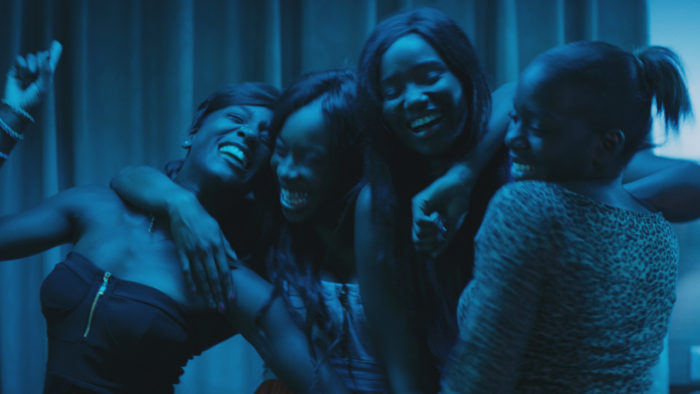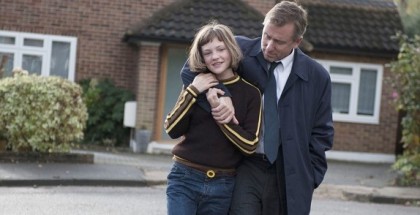VOD film review: Girlhood (2014, Bande de filles)
Review Overview
Diamonds
10Coming of age
8Authenticity
9Victoria Curatolo | On 05, Jul 2020
Director: Céline Sciamma
Cast: Karidja Touré, Assa Sylla, Lindsay Karamoh, Mariétou Touré
Certificate: 15
Watch Girlhood online in the UK: BFI Player / Apple TV (iTunes) / Prime Video (Buy/Rent) / TalkTalk TV / Rakuten TV / Google Play / Sky Store
When Girlhood was initially released back in 2014, Céline Sciamma had already received universal praise for her coming-of-age dramas Water Lilies (2007) and Tomboy (2011), both of which focused on identity and sexuality. Her third directorial release would complete her Girlhood trilogy – 2019’s Portrait of a Lady On Fire could easily render the trilogy a franchise – and suitably fit the title of the same name.
Girlhood follows the life of 16-year-old Marieme (Karidja Touré) who lives in the housing projects of Paris with her younger sisters, working mother and abusive older brother. Despite playing football and maintaining a strong work ethic, her social status and intellect let her down forcing her into a vocational course instead of going on to high school like the majority of her classmates. Cleaning is her only current prospect for a job, and after a crush on a local boy leads her to an encounter with three older bullies – Lady (Assa Sylla), Adiatou (Lindsay Karamoh) and Fily (Mariétou Touré) – she subsequently drops out of school and joins their gang.
Marieme fills her days with petty crime, antagonising shop workers and getting into fights. She accepts the path that has apparently been laid out for her, and becomes defined and constrained by society’s stereotyped role of “black thug”.
It is now famously know that when Sciamma was casting the role of Marieme and her fellow gang members that she sought out drama and theatre schools across France to find that they were all prominently white. Sciamma resorted to auditioning non-professional eventually finding and casting Karidja Touré in a role that’s now hard to imagine anyone else playing.
As in her previous films, Sciamma once again evokes the hardships and ambiguity of adolescence and femininity, this time examining the tribulations of class and race in an ever-challenging society (something she was criticised for). Girlhood is a coming-of-age story seen through the eyes of a confused and struggling teenager, something we can all – despite race or gender – can resonate with. The desire and need to belong is a part of humanity that will never fade, and the tragedy of changing everything about yourself – like Marieme does, from her hair to her clothes and even her name – is captured more powerfully in Girlhood that any other film in recent years.
The film’s most renowned scene sees the girls in a hotel room that they paid for by stealing, smoking cannabis and wearing clothes with the tags still on. They stop for a moment and unite by singing and dancing to Rhianna’s Diamonds. The scene depicts true solidarity and the potential to be young and free, something all of us desire. The scene is easily one of the most powerful and iconic of the last ten years, and one that no doubt will remain so in cinema history.
Since its release in 2014, many have associated Girlhood with Richard Linklater’s Boyhood, Noel Clarke’s Kidulthood and Mathieu Kassovitz’s La Haine. However, it is evident now more than ever that this is a film that doesn’t blend in, but stands in a league of its own, marching to the beat of its own drum – one of Rhianna’s no doubt, and rightly so.
Girlhood is available now on BFI Player, as part of a £4.99 monthly subscription.






















